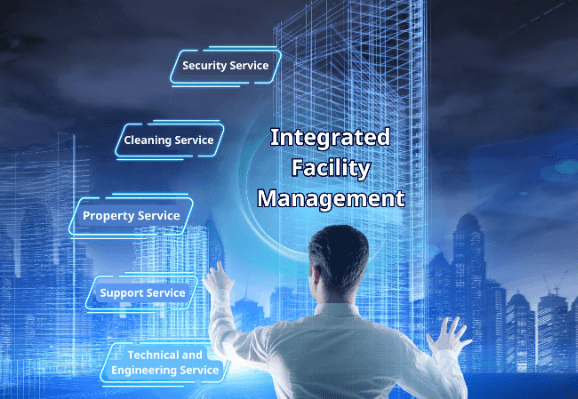The Essential Role of Integrated Facility Services in Creating Flexible and Adaptable Work Environments

In today’s rapidly changing work environment, the concept of Integrated Facility Services (IFS) is becoming increasingly crucial for organizations. IFS involves combining various support services into a single, cohesive package that meets the diverse needs of modern workplaces. As more companies adopt remote, hybrid, and flexible work arrangements, the importance of enhancing workplace flexibility and adaptability cannot be overstated. By embracing IFS, organizations can create environments that foster productivity, collaboration, and employee well-being, while also remaining agile in the face of evolving demands.
Flexibility in the workplace has transformed from a luxury into a necessity. Employees are now seeking jobs that can accommodate their personal and professional lives, which compels companies to adapt to these changing expectations. Integrated Facility Services play a vital role in this transformation by allowing organizations to remain competitive in a fast-paced business landscape. With IFS, businesses can design workspaces that promote various working styles and support seamless transitions between different work models, ensuring that employees are both satisfied and productive.
As organizations strive to navigate these new expectations, understanding the benefits of IFS becomes essential. Integrated Facility Services not only enhance workplace flexibility but also provide strategic advantages that can lead to long-term success. By leveraging technology and effective space management, IFS empowers companies to optimize their operations and respond efficiently to the evolving needs of their workforce. Therefore, recognizing how IFS can enhance adaptability is key to thriving in today’s dynamic work environment.
Understanding Integrated Facility Services (IFS)
Integrated Facility Services differ significantly from traditional facilities management approaches. While traditional management often focuses primarily on maintaining physical spaces and systems, IFS takes a more holistic approach. It integrates various services such as cleaning, maintenance, and space planning to create a comprehensive solution that meets the unique challenges of flexible work arrangements. This strategic integration allows organizations to respond more effectively to the diverse needs of their employees and ensures that the physical aspects of facilities are managed efficiently.
Additionally, hard facilities management companies contribute to the success of IFS by providing specialized expertise in managing the physical environment. This expertise is essential for creating a foundation upon which flexibility can thrive. When organizations partner with facilities management companies, they can streamline their operations and reduce costs while optimizing their resources. The result is an agile workspace that accommodates diverse work styles and promotes overall organizational efficiency.
Furthermore, implementing Integrated Facility Services enables companies to create environments that are both adaptable and sustainable. By investing in IFS, organizations are making a strategic choice that enhances their workplace adaptability. This investment not only benefits employees but also positions the company to respond effectively to changing market conditions and workforce needs. Thus, understanding IFS is vital for any organization looking to thrive in the current business landscape.
See also: Finding Affordable and Professional Plumbing Services in Inner West
Optimizing Space Utilization for Flexible Work Environments
One of the most significant ways that Integrated Facility Services facilitate workplace flexibility is through optimizing space utilization. In today’s dynamic work environment, traditional office layouts are often insufficient for meeting the diverse needs of employees. Many workers require different types of spaces, from collaborative areas for team projects to quiet zones for focused tasks. Integrated facilities companies can help organizations reconfigure their office layouts to accommodate these varying work styles effectively.
Moreover, the use of technology plays a crucial role in optimizing space utilization. Smart building management systems can track how spaces are used, providing valuable insights into employee behavior and preferences. This data allows organizations to make informed decisions about reallocating or redesigning spaces to enhance their functionality. For example, if certain areas of the office are consistently underused, businesses can modify their layouts to create more inviting and efficient environments, promoting both productivity and employee satisfaction.
Additionally, leveraging the expertise of integrated facilities companies ensures that the workspace is tailored to promote flexibility. By collaborating with these experts, organizations can create multifunctional spaces that serve multiple purposes. For instance, meeting rooms can be designed to easily transform into collaborative work areas, fostering teamwork and innovation. Ultimately, optimizing space utilization through IFS not only enhances workplace flexibility but also contributes to a more engaged and productive workforce.
Efficient Facility Management and Adaptability
As organizations embrace hybrid work models, the need for adaptability becomes even more critical. Companies must be able to pivot quickly in response to changing circumstances, such as new health regulations or evolving employee preferences. Efficient facility management is essential in this context, as it streamlines processes and enhances responsiveness. Integrated services allow companies to adapt to shifting workforce needs, ultimately improving employee satisfaction and overall organizational performance.
The role of technology in facility management further amplifies adaptability. Automated systems and predictive maintenance tools enable organizations to identify and address potential issues before they escalate into significant problems. This proactive approach minimizes disruptions, allowing employees to maintain focus on their work without unnecessary interruptions. For example, if an office experiences a malfunctioning HVAC system, a facilities management company can quickly mobilize resources to resolve the issue, ensuring a comfortable working environment for all employees.
Moreover, the combination of technology and efficient facility management fosters a culture of continuous improvement within organizations. As businesses adapt to new work models, they can leverage data and feedback to refine their processes continually. By implementing integrated facilities management, companies can create a responsive work environment that meets the changing needs of their employees while remaining agile in the face of future challenges. Ultimately, this adaptability is essential for long-term success in today’s competitive landscape.
Ensuring Seamless Transitions in Evolving Work Patterns
Another crucial aspect of Integrated Facility Services is their ability to ensure seamless transitions as organizations adapt to new work patterns. Changing work models often introduce challenges, such as managing employee expectations and maintaining effective communication. Integrated facilities management companies can play a significant role in facilitating these transitions by providing guidance and support throughout the process. By helping organizations develop change management strategies, IFS ensures that employees remain informed and engaged during shifts to new work arrangements.
Effective communication is vital during transitions, as it fosters a sense of community and belonging among employees. Integrated facility services can assist organizations in establishing clear communication channels that keep everyone informed about changes in policies, space configurations, and available resources. For instance, using digital signage or internal communication platforms can update employees about new office layouts or hybrid work schedules. This proactive approach minimizes confusion and allows employees to feel more comfortable with the adjustments being made.
Furthermore, the successful management of transitions leads to higher employee satisfaction and retention. When employees feel supported during times of change, they are more likely to embrace new work arrangements and contribute positively to the organization. Integrated Facility Services not only help organizations navigate transitions smoothly but also cultivate a culture of adaptability that empowers employees. By prioritizing clear communication and support, organizations can enhance their ability to adjust to evolving work patterns effectively.
Cultivating a Culture of Adaptability
In addition to supporting transitions, Integrated Facility Services can help organizations cultivate a culture of adaptability. By prioritizing flexibility and responsiveness, businesses can create an environment that encourages innovation and collaboration. This culture is essential for attracting and retaining top talent, as employees increasingly seek workplaces that value their well-being and ability to adapt. To foster this culture, organizations can design spaces that promote interaction and teamwork while also providing the necessary resources for focused work.
Moreover, organizations can draw inspiration from successful case studies that demonstrate the tangible benefits of enhancing workplace flexibility through Integrated Facility Services. Many companies have transformed their office environments to better support hybrid work models, showcasing how strategic approaches to facilities management can lead to positive outcomes. For instance, a tech company may have reconfigured its office layout to include more collaborative spaces, which resulted in increased employee satisfaction and productivity. By highlighting such success stories, organizations can see the potential advantages of prioritizing flexibility in their work environments.
Furthermore, cultivating a culture of adaptability requires ongoing commitment and investment from leadership. When management prioritizes flexibility and responsiveness, employees are more likely to embrace these values in their work. Ensuring that physical spaces and operational strategies align with the goal of fostering adaptability is crucial. This alignment not only enhances workplace flexibility but also contributes to the overall success and resilience of the organization, creating a workplace where employees feel supported and motivated to thrive.
Final Thoughts
As companies navigate the complexities of modern work arrangements, the importance of Integrated Facility Services becomes increasingly clear. By optimizing space utilization, leveraging technology, and ensuring effective communication, organizations can create workplaces that are not only flexible but also responsive to the evolving needs of their workforce. This adaptability not only enhances employee satisfaction but also positions organizations for long-term success in a competitive business landscape.
In summary, embracing Integrated Facility Services allows companies to thrive in today’s fast-paced environment. The combination of efficient facility management, strategic space optimization, and proactive communication creates a foundation for enhanced adaptability. As organizations continue to evolve, the role of IFS will only grow in importance, making it a critical component of any successful workplace strategy.






